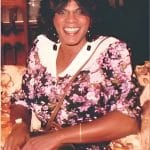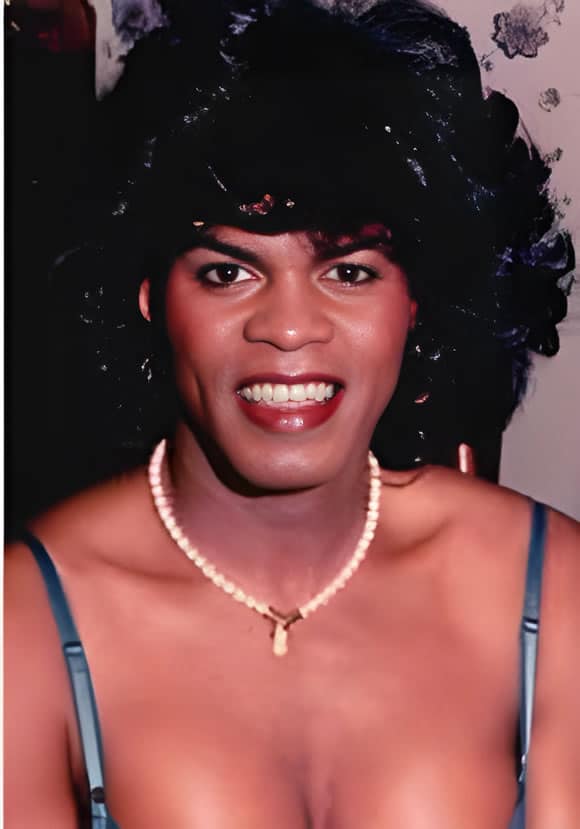The Michigan Womyn’s Music Festival
The Michigan Womyn’s Music Festival By Roberta Angela Dee

Michigan: … the incredible clear night skies.
A place to go to get your opinions stretched and your senses rocked.
A community of womyn. Freedom and safety. Diversity …
This article is an open letter to the lesbian community. I write it because it doesn’t seem that the lesbian community — at least as their community is represented through the Michigan Womyn’s Music Festival — is very willing to stretch their opinions or open their minds. The fact is that there is very little diversity in an essentially homogenous crowd.
Overview: The Michigan Womyn’s Music Festival
Given the reputation that the Michigan Womyn’s Music Festival has earned for excluding transgendered and transsexual women, it was no surprise that their exclusionary policy was not stated anywhere among the pages of their latest website. They also avoided using the phrase “woman-born woman” as had been used during previous festivals. The phrase “woman-born woman” was devised solely to exclude transsexuals, transgendered women, and cross-dressers.
The purpose of this article is to address a form of prejudice that has been prevalent for far too long among lesbians. It must be addressed because social biases do not disappear or dissolve by spontaneously. People have to take a stand and speak out against prejudice in all its varied forms.
Silence is not golden regarding matters of prejudice — whether it has to do with race, religion, sexual preference, or gender preference.
Some say that the Michigan Womyn’s Music Festival has changed its policy against transsexuals, provided they are postoperative. It is my hope that this true. If true, it’s at least a beginning.
THE OPRESSED OPPRESSING THE OPPRESSED
It would seem that women who have suffered discrimination as a result of their sexual preference would be more compassionate towards women who have suffered discrimination because of their preference of gender. Unfortunately, this has not been the case. While boasting about a willingness to get their opinions “stretched,” little has changed within the lesbian community to improve their relationship with transgendered and transsexual women.
It is a case of the oppressed oppressing the oppressed.
Prejudice is prejudice. You can’t ridicule society for directing prejudices at your group while you direct identical prejudices towards another group. Prejudice is wrong. Bigotry is wrong. It’s not something that’s unjustified in one group but justifiable in another group. Bigotry is wrong wherever it exists.
LESBIAN LOGIC
The arguments from the lesbian community regarding transsexual or transgendered women can be identified as follows:
* Lesbians feel threatened by the penis because of childhood experiences;
* One cannot be anatomically male and psychologically female; and
* Neither transsexual, nor transgendered women can be socially conditioned to be women, partly because they have not, and cannot, share all of a woman’s experiences.
Argument One:
The first bulleted item suggests that the majority of lesbians have been raped or sexually abused as children; and, as a result of this negative sexual experience 1) became lesbian, and 2) developed a phobia of male genitalia.
Are these arguments reasonable or probable?
The first part of this argument suggests that an individual develops their sexual preference as a result of some prior sexual experience. If it were true that a negative sexual experience could cause an individual to become homosexual, then it would also follow that a positive sexual experience would cause an individual to become heterosexual.
Does bad sex lead to homosexual preferences and good sex leads to heterosexual preferences? Is this probable or reasonable? Or, is it more probable and reasonable to argue that sexual preference is predetermined?
A heterosexual would never argue that they were forced to become heterosexual because of a positive sexual experience with a member of the opposite sex. More importantly, there is no evidence that such is the case. Why then would anyone assume it is logical or reasonable to assume that a woman becomes a lesbian because she was sexually abused as a child or raped as an adolescent or as an adult?
The second part
The second part of the argument bears some credibility. The first part, however, bears little if any at all.
It is understandable that a young girl or woman, raped or sexually abused by a man, is likely to develop distrust and a degree of contempt for men who are sexual predators — possibly for all men. However, can we say that most transgendered or transsexual women are sexual predators? Do most even have the ability to sexually perform as men?
In the instance of a postoperative transsexual, there is no penis. Therefore, there is no source for aversion. As for preoperative male-to-female transsexuals and transgendered women, most often they make a very conscious attempt to conceal their male appendage. Additionally, prolonged use of female hormones, anti-androgens, or a combination of both, has already caused sterility and impotency. So, again, we are presented with a very poor argument — one that appears to be rooted either in prejudice or ignorance.
Some fears are simply irrational. Should we punish a segment of society because a few members of some other group suffers from irrational fears?
Argument Two:
The second bulleted item suggests that one cannot be anatomically male and psychologically female. This is not only a false assertion; it is also an assertion that is highly hypocritical.
What is a butch lesbian but an individual who is anatomically female, yet predisposed to exhibiting a more masculine than feminine demeanor? Some butch lesbians even wear a concealed prosthesis of the male appendage. It’s called packing. And in a community that supposedly fears the male appendage, it’s acceptable.
So there appears to be a selective comprehension of the fact that sex and gender are not always the same. Some lesbians even assert that they are neither male, nor female.
A lesbian might say that her gender is butch, or that she is male but not a man. Within the lesbian community, gender is afforded a wide variety of flexibility. It is only when someone is perceived as being outside the lesbian community that views on gender become so limited.
The fact of the matter is that sex and gender are not the always the same. A man can be more feminine than masculine, just as a woman can be more masculine than feminine. Sex is physical. Sex is the body. Gender is the mind. Gender is the heart, mind and soul.
Argument Three:
The third argument is rooted in the feminist “social construct” philosophy that asserts that society is the great mechanism that defines us and lays down the rules that tells us what to be. Today, the same teachers who once taught that all homosexuals were deviants, now teach the theory of a social construct as thought it were an indisputable fact.
The idea that anyone born male cannot understand what it means to be born female is absurd. Not every woman bears a child. Not ever woman menstruates. And aside from birthing and bleeding, what is so unique and incomprehensible about the experience of being a woman that no transgendered woman or transsexual woman could ever comprehend it?
This is typically the last great argument against the acceptance of transgendered or transsexual women. Not surprising, I’ve never heard or read anything that identifies the specific experience that makes it impossible to understand what it is to be a woman. It is always some vague and mystical idea that has yet to be made clear to anyone.
Yes, if you are a man and live as a man, it’s nearly impossible to understand much of what it means to be a woman. However, if you identify as a woman and live as a woman, it’s not all that difficult to comprehend what being a woman is all about.
After living as a woman for 24 years, I very much know how women feel about things: about cross dressers, transgendered women, transsexual women, a patriarchal society, male anatomy, and so on. I assure you, it’s not an incomprehensible mystery.
CONCLUSION
End prejudice! Stop bigotry!
That’s the beginning and end of my message: end prejudice and stop bigotry. It doesn’t work to say that prejudices directed at African Americans or Jews is unacceptable but prejudices directed at lesbians or disabled citizens is tolerable. As a society and as a nation, we must learn to recognize that all forms of prejudice and bigotry is unacceptable and that it should never be tolerated.
I’m certain that there are many lesbians who will say that they have no problem with transgendered or transsexual women. Well, if this is true, I would love to hear their voices. I would love to hear even a small part of the lesbian community vocalize that the exclusionary policy of the Michigan Womyn’s Music Festival is wrong, and that all such polices are wrong. Silence is not golden regarding matters of prejudice — whether it has to do with race, religion, sexual preference, or gender preference.
A small percentage of transgendered and transsexual women say that they are accepted by the lesbian community and have experienced nothing that can be called exclusionary. Well, if this is true, speak out with your lesbian sisters. Silence is not golden regarding matters of prejudice — whether it has to do with race, religion, sexual preference, or gender preference.
The End
More by Roberta Angela Dee
The Transgender Guide Site Links:
- Trans Clothing & Accessories
- Transgender Support Groups
- Transgender Voice Training
- Trans Friends & Support Chat (non-adult)
- Trans Adult & Dating Chat (adult-oriented)
- Transgender Friends and Dating Profiles
- Transgender Social Media at TGGuide
Roberta Angela Dee, Journalist & Trans Activist

Roberta Angela Dee (October 31, 1950–March 13, 2003) was an American author, transgender rights activist and frequent contributor to TGGuide.com. Roberta was born in Brooklyn, New York, grew up in Long Island, and lived in Atlanta before settling in Augusta, Georgia. She had a journalism degree. Her writing was published widely, and she was founder of the Women on the Net (WON) website, an early online resource for women of color.
